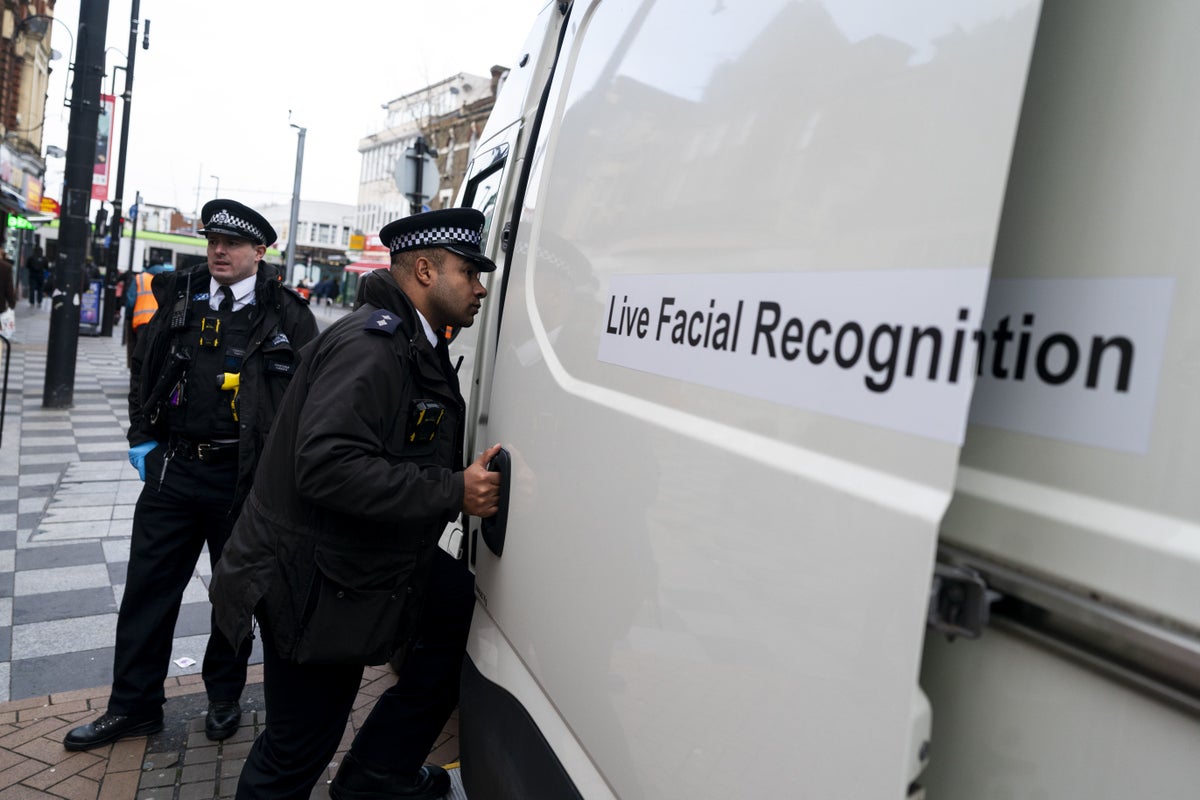
The Metropolitan Police’s policy over live facial recognition (LFR) technology is “unlawful” because it is “incompatible” with human rights laws, the equalities watchdog has said.
The Equality and Human Rights Commission (EHRC) has said the UK’s biggest police force’s rules and safeguards over using the tool “fall short” and could have a “chilling effect” on individuals’ rights when used at protests.
The concerns come as the Met is set to deploy LFR, which captures people’s faces in real-time CCTV cameras, at this year’s Notting Hill Carnival over the August bank holiday weekend.
Metropolitan Police commissioner Sir Mark Rowley has already sought to reassure campaign groups that the technology will be used without bias.
The EHRC has been given permission to intervene in an upcoming judicial review over LFR, brought by privacy campaigner Big Brother Watch director Silkie Carlo and anti-knife crime community worker Shaun Thompson.
They are seeking the legal challenge claiming Mr Thompson was “grossly mistreated” after LFR wrongly identified him as a criminal last year.
EHRC chief executive John Kirkpatrick said the technology, when used responsibly, can help combat serious crime and keep people safe, but the biometric data being processed is “deeply personal”.
“The law is clear: everyone has the right to privacy, to freedom of expression and to freedom of assembly. These rights are vital for any democratic society,” he said.
“As such, there must be clear rules which guarantee that live facial recognition technology is used only where necessary, proportionate and constrained by appropriate safeguards.
“We believe that the Metropolitan Police’s current policy falls short of this standard. The Met, and other forces using this technology, need to ensure they deploy it in ways which are consistent with the law and with human rights.”
The watchdog said it believes the Met’s policy is “unlawful” because it is “incompatible” with Articles 8, right to privacy, 10, freedom of expression, and 11, freedom of assembly and association of the European Convention on Human Rights.
Big Brother Watch interim director Rebecca Vincent said the involvement of EHRC in the judicial review was hugely welcome in the “landmark legal challenge”.
“The rapid proliferation of invasive live facial recognition technology without any legislation governing its use is one of the most pressing human rights concerns in the UK today,” she said.
“Live facial recognition surveillance turns our faces into barcodes and makes us a nation of suspects who, as we’ve seen in Shaun’s case, can be falsely accused, grossly mistreated and forced to prove our innocence to authorities.”
“Given this crucial ongoing legal action, the Home Office and police’s investment in this dangerous and discriminatory technology is wholly inappropriate and must stop.”
It comes as Home Secretary Yvette Cooper defended plans to expand LFR across the country to catch “high-harm” offenders last week.
Last month, the Metropolitan Police announced plans to expand its use of the technology across the capital.
Police bosses said LFR will now be used up to 10 times per week across five days, up from the current four times per week across two days.
The Metropolitan Police has been contacted for comment.
